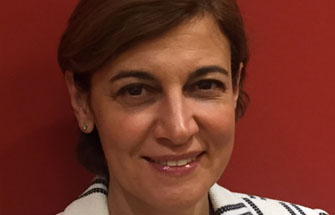The Commission for the Control of Financial Activities (CCAF) is responsible for overseeing the financial activities of the Monaco financial industry. Composed of at least seven members, chosen for their expertise and appointed by sovereign ordinance for five years, it also includes the Chairman of the Monaco Association for Financial Activities (AMAF) and the Chairman of the Monaco Order of Accountants (OECM). We met with the Secretary General of the Commission, Ms Magali VERCESI.
As a supervisory authority, the CCAF fulfils several roles…
Indeed, the Commission issues a licence to credit institutions, management companies and Multi-Family Offices wishing to operate a financial business in the Principality.
The Commission also regularly inspects licensed institutions. In fact, we have strengthened our dedicated inspection unit.
Moreover, it helps ensure global financial supervision runs smoothly by entering into agreements for the exchange of information and cooperation, the implementation of which is subject to investigation.
It is important to provide a secure environment for financial professionals, as well as for the clients of financial institutions.
When unlicensed entities not actually registered in Monaco attempt to raise capital, we report it immediately on our website, to warn as many people as possible.
Have there been fewer licence applications this year, due to the pandemic?
On the contrary, we have experienced no decline in activity. There have been many licence applications, and we are working to process them as efficiently as possible.
Moreover, there has been no slowdown in the demand for cooperation: we are now working with seven countries.
Why join the International Organization of Securities Commissions (IOSCO)?
The main objective of the IOSCO, created in 1983, is to establish international standards to improve market efficiency and transparency. It brings together the regulators of the major stock exchanges around the world, so it made sense for us to join it. Now we help monitor financial markets through bilateral information exchange agreements that shape our relations with foreign authorities with similar powers. We have just signed a cooperation agreement with our Quebec counterpart.
CCAF obtained the status of IOSCO Associate Member in 2018, and our application to become a regular member is ongoing. At the IOSCO congresses we receive a lot of useful information about regulations. This has encouraged us to update our legislation, which dates back to 2007.
Are you a member of any other international organisations?
Yes, we are a member of the Francophone Institute of Financial Regulation (IFREFI).
We have also applied to join the Network for Greening the Financial System, a network currently comprising more than 40 central banks and supervisors that want to help develop climate and environment-related risk management in the financial sector and leverage conventional finance to support the transition to a sustainable economy.
What current issues are you working on?
We are involved in the National Risk Assessment and working groups on this subject. We have formed stronger ties with SICCFIN, CCIN, and the AMAF, and we regularly exchange information with them.
We have reached a mutual agreement that the Professional Certification established in 2014 and implemented by the AMAF, which applies to certain categories of employees, will be extended to executive directors. This training delivered at the premises of the International University of Monaco allows professionals recently established in the Principality to quickly get an understanding of the regulations applied to them. It is an excellent way to improve our appeal.
Finally, our Chairman, Mr Gérard RAMEX, was Chairman of the Financial Markets Authority (AMF). The Deputy Secretary General of the AMF is a member of the CCAF. The two entities are very close, and an advisory committee attended by the Governor of the Bank of France and the Chairman of the AMF meets once or twice a year to discuss current issues.






